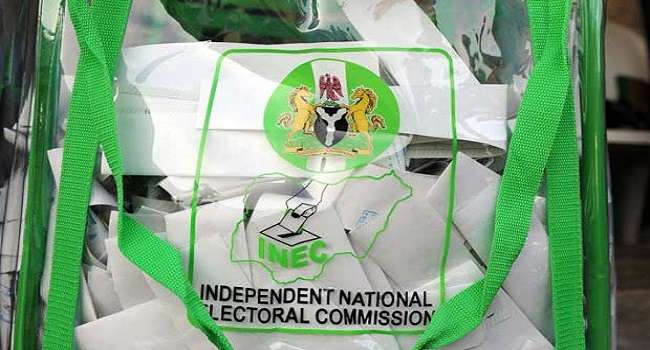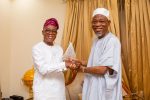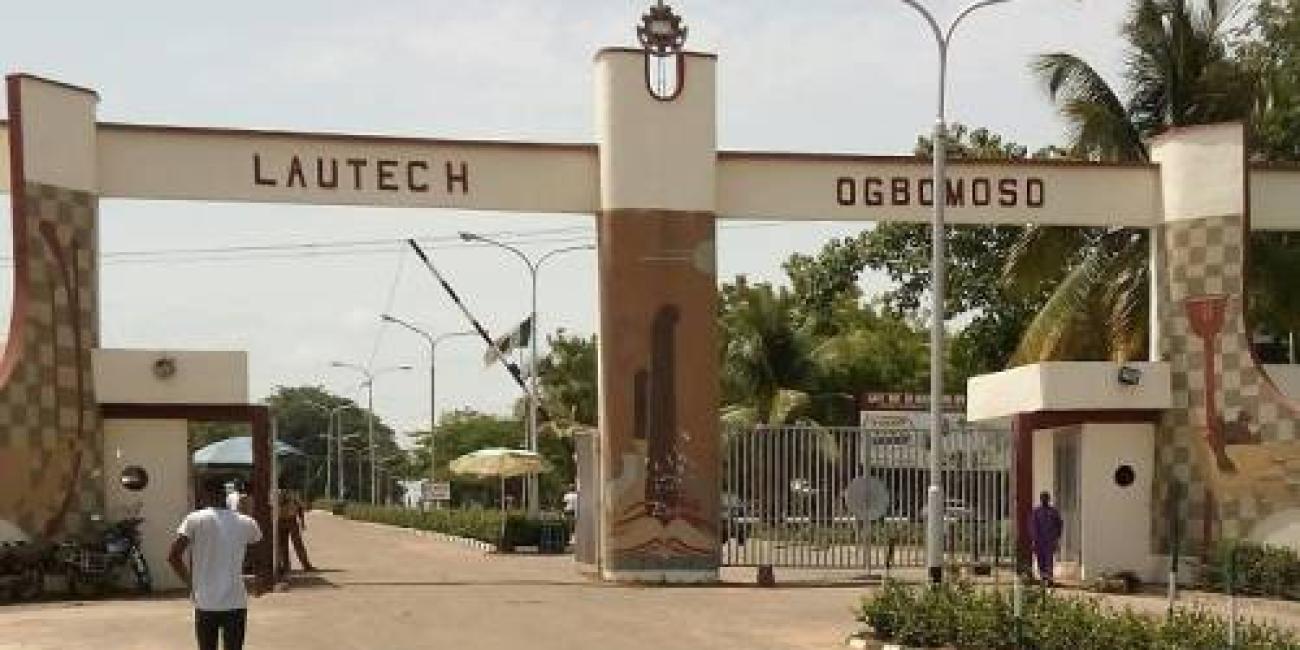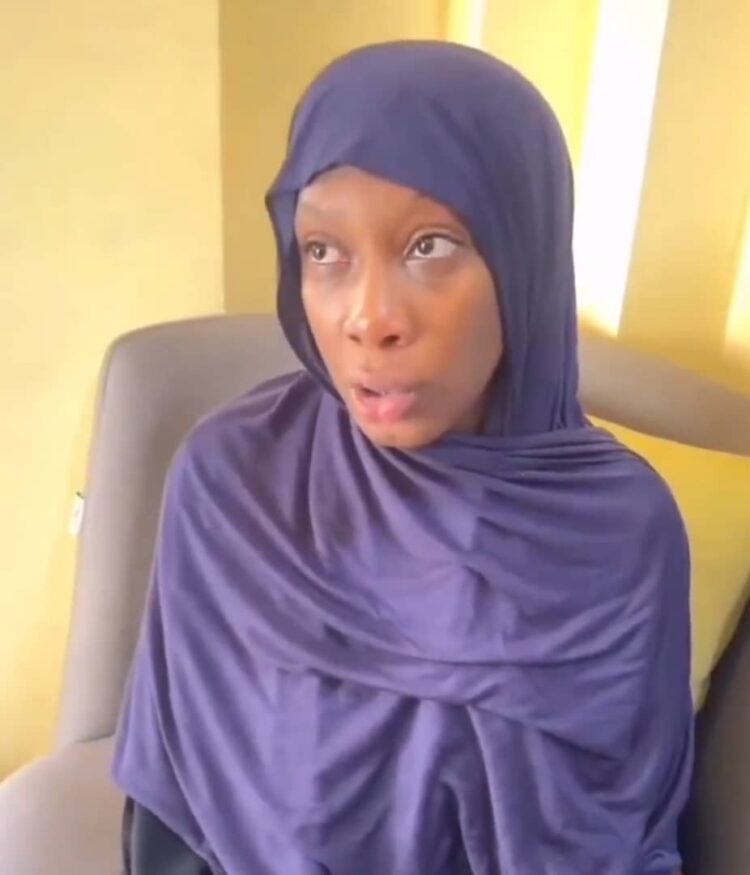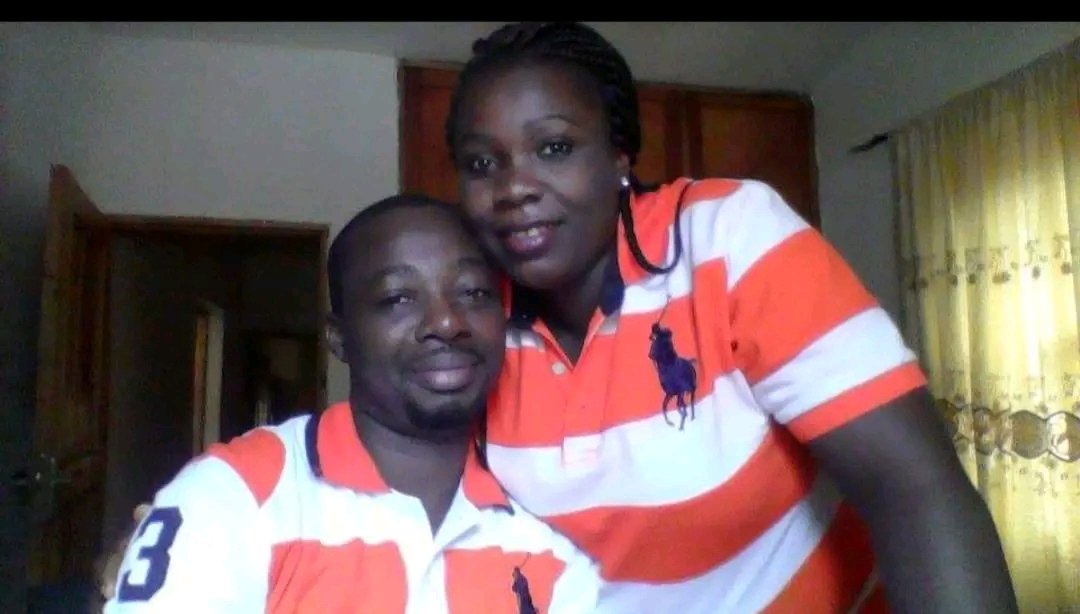Have you read: “Great Expectation” by Charles Dickens? Do you see how Mrs Joe Gargery copes with her disappointment and decides to move on unperturbed? Do you know that nothing gladdens the heart of our Governor more than for us to remain calm in this State and cooperate with INEC to deliver on its mandate? Do you know that as a nation, we should move on rather than grope on the temporary postponement of the elections? Do you know that we should not hype the matter unnecessarily so that our economy and politics are not negatively impacted? Are you aware that we are a country of 200 million people and we must get it right? You say: Why? Come on.
Are you aware that elections are a central feature of democracy? Do you know that for an election to express the will of the electorate, it must be free, fair and credible? Do you know that freeness of an election means that all those entitled to vote have the right to be registered and to vote and must be free to make their choice, including the APC candidates in Zamfara and River States? Do you know that it is better to postpone an election than to have a compromised election riddled with fraud? Do you know that fairness of an election means that all the 91 registered political parties have an equal right to contest the elections, campaign for voter support and hold meetings and rallies? Are you aware that as at Saturday 16th February, 2019, the Independent National Electoral Commission of Nigeria had not fixed the issues of APC candidates in Zamfara and Rivers States? The question is: What will a reasonable man in the helms of affairs at INEC do in this scenario to be compliant with international best practices? Enjoy this time-out.
Are you aware of the African Charter on Democracy, Elections and Governance? It states: “We, the member States of the African Union (AU); …committed to promote the universal values and principles of democracy, good governance, human rights and the right to development;…seeking to entrench in the Continent a political culture of change of power based on the holding of regular, free, fair and transparent elections conducted by competent, independent and impartial national electoral bodies; concerned about the unconstitutional changes of governments that are one of the essential causes of insecurity, instability and violent conflict in Africa; determined to promote and strengthen good governance through the institutionalization of transparency, accountability and participatory democracy; convinced of the need to enhance the election observation missions in the role they play, particularly as they are an important contributory factor to ensuring the regularity, transparency and credibility of elections; desirous to enhance the relevant Declarations and Decisions of the OAU/AU (including the 1990 Declaration on the political and socio-economic situation in Africa and the fundamental changes taking place in the world, the 1995 Cairo Agenda for the Re-launch of Africa’s Economic and Social Development, the 1999 Algiers Declaration on Unconstitutional Changes of Government, the 2000 Lomé Declaration for an OAU Response to Unconstitutional Changes of Government, the 2002 OAU/AU Declaration on Principles Governing Democratic Elections in Africa, the 2003 Protocol Relating to the Establishment of the Peace and Security Council of the African Union); committed to implementing Decision EX.CL/Dec.31(III) adopted in Maputo, Mozambique, in July 2003 and Decision EX.CL/124(V) adopted in Addis Ababa, Ethiopia, in May 2004 respectively, by the adoption of an African Charter on Democracy, Elections and Governance; HAVE AGREED AS FOLLOWS:
Promote the holding of regular free and fair elections to institutionalize legitimate authority of representative government as well as democratic change of governments; prohibit, reject and condemn unconstitutional change of government in any Member State as a serious threat to stability, peace, security and development..” Nigeria is a signatory to this Charter and we cannot walk away from it. INEC must have studied this Charter more closely. Hence, it resolved to postpone last Saturday’s elections in Nigeria. If you say: Why? Wait for this time-out.
Hurray! Do you know that the Presidential and National Assembly elections are now to be held on Saturday 23 February, 2019 while the Governorship and House of Assembly Elections will be held on Saturday 9th March, 2019? The general elections in Nigeria are here with us to elect representatives to the Nigerian federal government and the various States in Nigeria. .This will be the sixth quadrennial elections since the end of military rule in May, 1999. The President of Nigeria is elected using a simple majority of the highest votes cast, as well as over 25% of the votes in at least two-thirds of States of the Federation. The 360 House of Representatives members are elected on Federal constituency basis while the 109 Senators are elected from the three Senatorial Districts into which each States is divided.
Do you know that the social class in power in Nigeria are boxed into two opposing camps, each sticking to its gun on corruption and its effects on Nigerians and the voting process? Are you aware that while INEC is citing logistic reasons, other opinions are adduced for the postponement? The opposition parties deferred and argued that the foundation for the postponement were laid early enough. To start with, they cited the statements in the air on 12th September, 2018 credited to one Rotimi Oyekanmi, Chief Press Secretary to INEC chairman, making a rebuttal of a newspaper headline saying: “Our attention has been drawn to a story with the headline – We May Shift 2019 Polls Over Threat Of Violence – INEC – which appeared on the front page of a national newspapers today, but which did not correctly reflect what the Independent National Electoral Commission Chairman, Prof. MahmoodYakubu said at the Inter-agency Consultative Committee on Election Security (ICCES) meeting that took place at the Commission’s headquarters on 11th September 2018”.
Do you know that the opposition wanted to make their stories look good by linking, possibly with mischief, Onnoghe’s trial to the groundwork of the ruling party? They went far to connect the letter of the Attorney-General to INEC requesting the body to consider the inclusion of APC candidates in Zamfara and Rivers States in the lists of candidates for the elections. It could be seen that the various tendencies of the ruling party do not in any way, suggestive of any complicity to postpone the election. For instance, the President was already in Daura preparing to vote. The Vice President was already in Lagos, ready for the ballots. The borders had been shut. All security architectures had been deployed. All those tendencies are suggestive that the decision was that of INEC and not by any way, an executive interference in the elections. President Buhari is a man of integrity and his party is no less, a party of integrity.
In the spirit of political camaraderie, the opposition parties need to be pardoned for holding that belief. They must have vituperated under pressure. The words of Labanji Bolaji in his book: “My Conscience is not for Sale” are apposite here: “Even Jesus Christ who was specifically sent by God to redeem mankind in the elections, the ruling party’s gestures do not suggest that it begged God, the Father, to spare him the bitter cup of death, if possible. The hearts of men are not made of stones and the strongest of men have their moments of doubt under pressure.”
Do you know that it is a notorious fact that it will occasion politicians to spend more, INEC to spend more, another holiday that may lead to loss of revenue and possibly some words of condemnation by a section of the press and possibly international observers whose traveling plans may be affected by the postponement of the elections? Are you aware that we have to show understanding as the elections would gain more traction in its voyage of credibility? Do you know that the opposition that is expressing blue murder are only, out of common reflex, playing the power-sermon of Vince Lombardi in all of us? Do you know that Vincent Lombardi’s mischief is living in all of us whatever the side of the pitch we are? His voice interludes: “What It Takes to be Number One
“Winning is not a sometime thing; it’s an all the time thing. You don’t win once in a while; you don’t do things right once in a while; you do them right all of the time. Winning is a habit. Unfortunately, so is losing.
There is no room for second place. There is only one place in my game, and that’s first place. I have finished second twice in my time at Green Bay, and I don’t ever want to finish second again. There is a second place bowl game, but it is a game for losers played by losers. It is and always has been an American zeal to be first in anything we do, and to win, and to win, and to win.
Every time a football player goes to ply his trade he’s got to play from the ground up – from the soles of his feet right up to his head. Every inch of him has to play. Some guys play with their heads. That’s O.K. You’ve got to be smart to be number one in any business. But more importantly, you’ve got to play with your heart, with every fiber of your body. If you’re lucky enough to find a guy with a lot of head and a lot of heart, he’s never going to come off the field second.
Running a football team is no different than running any other kind of organization – an army, a political party or a business. The principles are the same. The object is to win – to beat the other guy. Maybe that sounds hard or cruel. I don’t think it is.
It is a reality of life that men are competitive and the most competitive games draw the most competitive men. That’s why they are there – to compete. The object is to win fairly, squarely, by the rules – but to win.
And in truth, I’ve never known a man worth his salt who in the long run, deep down in his heart, didn’t appreciate the grind, the discipline. There is something in good men that really yearns for discipline and the harsh reality of head to head combat.
I don’t say these things because I believe in the ‘brute’ nature of men or that men must be brutalized to be combative. I believe in God, and I believe in human decency. But I firmly believe that any man’s finest hour — his greatest fulfillment to all he holds dear — is that moment when he has worked his heart out in a good cause and lies exhausted on the field of battle – victorious.”
Are you aware that the words of Vince Lombardi are echoing in different parts of the world as they are having their elections this year, 2019? In the continent of Africa, are you aware that the following elections are coming up in 2019? They are: Nigeria, Presidential and national assembly elections, 23 February 2019, Senegalese presidential election, 24 February 2019, Guinea-Bissau general election, 10 March 2019, Malagasy general election, 20 March 2019, Algerian presidential election, April 2019, Beninese parliamentary election, 28 April 2019, Malawian general election, 21 May 2019, Botswana general election, October 2019, Mozambican general election, 2019 October 2019, Tunisian parliamentary election, October 2019, Tunisian presidential election, December 2019, Namibian general election, November 2019, South African general election, 2019 to mention but a few.
In Asia, the following elections are coming up in 2019. They are: Philippine general election, 13 May 2019, North Korean parliamentary election, 10 March 2019, Hong Kong local elections, November 2019, Indian general election, 2019. In Europe, some of the countries having elections include: Moldovan parliamentary election, 24 February 2019, Estonian parliamentary election, 3 March 2019, Ukrainian presidential election, 31 March 2019, Finnish parliamentary election, 14 April 2019, United Kingdom local elections, 2 May 2019, European Parliament election, 23-26 May 2019 to mention but a few.
In North America, the following elections are coming up: Salvadoran presidential election, 3 February 2019, Guatemalan general election, 16 June 2019, United States gubernatorial elections, 5 November 2019. In South America, the following elections are coming up in 2019: Argentine general election, 27 October 2019, Bolivian general election, October 2019. In Middle East, the following elections are coming up: Israeli parliamentary election, 9 April 2019, United Arab Emirates legislative election, October 2019. In the continent of Oceania, Australian federal election, 18 May 2019 for House and half Senate (or a House only election before 2 November 2019. As all these countries are planning to get it right, we must get it right too. Why? Come along.
Do you know that in most jurisdictions, general elections are held between every three to five years? Do you know that there are some exceptions? Are you aware that in Mexico and Russia since 2008 amendment, presidential elections are held every six years? Do you know that there are some constitutions that give a fixed timing for elections? Yes! Do you know that the Constitutions of the United States, Switzerland and Sweden give fixed timing for elections and the provisions are sacrosanct? Do you know that some constitutions allow the government to dissolve Parliament and call a new vote up to a certain time limit? Are you aware that this is the practice in the United Kingdom, Israel and Japan? Do you know that in some countries, some constitutions may require parliaments to elect the Head of State as practiced in Greece? Do you know that in some jurisdictions, the election for the representative assembly determines the government? Do you know that in all countries in the Americas which directly elect their President, the Presidential and the legislative election are held at the same time? Do you know that in most countries in Europe, these elections are split and scheduled at different times? Are you aware that there are international standard rules to judge whether the election is fair or unfair? Do you know that this is called social choice theory? Do you know what we call social choice theory? Come along please. The words of Leigh Denton in “Yesterday’s Spy” cut in: “To travel is to discover that everything is wrong.” .
Do you know that there is a field of study that is called Welfare Economics? It deals with issues relating to compensations and fairness, liberty and rights, axiomatic preferences of agents, variable populations, strategy-proofing of social-choice mechanisms, natural resources, capabilities and functioning of institutions, welfare contents of constitutions, the issues of justice and rule of law and finally the issue of poverty in the country. Do you know that Condorcet, Karl Marx, Arrow and May did a lot of works in this field of study? Do you know that Welfare Economics is used to formulate Voting Theory and the function of a constitution in a country? Do you know that the Social Choice Theory aggregates preferences and behaviors of individual members of society in relation to the content of Welfare Economics which rules the voting theory? Do you know that these are the contents of Economic Models of Political Processes in relation to rent-seeking tendencies, elections, legislatures, and voting behavior in our society? Do you now see that election is a science to resolve some knotty issues in Welfare Economics? Do you know that in that science, interests of classes clash openly as we are witnessing in ‘Buharism’ and ‘Atikuism’?
Do you know that some countries hold staged elections, thus limiting social choice theory? Do you know that human rights violations in international law include compromise of the right to participate in government through free elections, the right to freedom of association, or the right to free expression? Do you know that under Social Choice Theory elections may be unfair if the law implicitly favours a group over others, or abuse of media ownership or when unlawful political campaign financing favours particular interest groups, using ‘dirty money’? Do you know that corruption can fight back? Are you aware that like in all jurisdictions, corruption is fighting back in Nigeria and trying to upstage the integrity-soaked government of the present administration through vote-buying using ‘dirty money’? Do you know what we ‘dirty money’? Do you know that it is dangerous? A time-out.
‘Dirty Money’ is an American documentary television series which tells stories of corporate corruption. The documentary has six episodes of one hour long. It began streaming on TV on 26 January 2018.Each episode focuses on one example of corporate corruption and includes interviews with key players in each story. The show looks at the terrible, unethical behavior that corporate entities try getting away with when they think nobody’s looking, including compromising institutions to undermine Social Choice Theory and Welfare Economics. Dirty Money episodes explore the possibility to make a few sensational headlines of corruption and its tendencies that slipped under common radar. The six episodes aim to explore the greed driven rationale behind the headlines, and the ripple effect the actions of a few had on the many, who constitute the majority in our world. It exposes money laundering. What is money-laundering? Come along.
Money laundering is the process of making large amounts of money obtained from criminal activity to appear as if the fund is coming from the legitimate source. There are three steps involved in the process of laundering money: placement, layering and integration. Placement occurs when “dirty money” is injected into the financial system. Layering occurs as the act is concealed by engaging in complex transactions. Integration occurs by adopting book-keeping tricks to make that money look legitimate. Do you know that the notable tactics used by money launderers include: the use of “fronts”,”structuring”, through the use of currency exchanges, wire transfers, and “mules” or cash smugglers, investing in commodities such as gems and gold that can be easily moved to other jurisdictions, discretely investing in and selling valuable assets such as real estate, gambling, counterfeiting and creating ‘shell’ companies. Do you know that internet money operations make money laundering a hard crime to tackle? Do you know that we need serious cyber-security and the eagle eyes of the EFCC to be on top of this cankerworm? Do you know that this is the battle that President Buhari has been battling to restore dignity back to us as a nation? Do you know that the influx of ‘dirty money’ into our country is responsible for vote-buying? Do you know that ‘dirty money’ has terrible implications on all of us?
Are you aware of actions against this crime? It was in 1970. The United States passed the Banking Security Act requiring financial institutions to report certain transactions to the Department of the Treasury, such as cash transactions above $10,000 or any transactions they deem suspicious, on a suspicious activity report (SAR).The information these banks provide to the Treasury Department is used by the Financial Crimes Enforcement Network (FinCEN), where it can then be sent to domestic criminal investigators, international bodies or foreign financial intelligence units. In 1989, the Group of Seven (G-7) formed the Financial Action Task Force (FATF) in an attempt to fight money laundering on an international scale. In 2001, shortly after the 9/11 terrorist attacks, the United States of America passed Title III of the Patriot Act, called the “International Money Laundering Abatement and Financial Anti-Terrorism Act of 2001 to strengthened money-laundering prevention by allowing the use of investigative tools designed for organized crime and drug trafficking prevention for terrorist investigations. The law imposes strict bookkeeping requirements and also authorizes the Secretary of the U.S. Treasury to develop regulations that encourage better communication among financial institutions with the goal of making it more difficult for money launderers to hide their identities. The Treasury can also halt the merger of two banking institutions if both entities have a history of failing to put adequate anti-money-laundering procedures in place. Today, we now have the Association of Certified Anti-Money Laundering Specialists (ACAMS) and EFCC.
Do you know that the impact of money laundering is enormous? Do you know that according to a 2018 survey, global money laundering transactions account for roughly 2% to 5% of global GDP, or roughly $1 trillion to $2 trillion annually? Do you know that money laundering also impacts legitimate business interests since money launderers often provide products or services at less than market value? Do you know that money laundering can compromise democracy through vote-buying? Are you aware that Deutsche Bank, ING, the Royal Bank of Scotland, Barclays and Lloyds Banking Group are among institutions that have been fined for being involved with transactions associated with money-laundering activities in countries such as Iran, Libya, Sudan and Russia? Do you know that the HSBC bank of the United States in 2012, bank agreed to pay $1.92 billion in fines to U.S. authorities for money laundering? Do you know that banks in Switzerland were noted for their expertise in money laundering? Enjoy this time-out.
Switzerland has a FIFA-rated reputation for tax evasion, fraud accounting, money laundering, racketeering and providing fortress for corrupt leaders of third world countries. It provides a deposit box for dirty money. In 2009 an action by the US Justice Department against the Swiss Banking giant UBS earned the United States close to $1 billion. In 2001, the United States learned that the Swiss had protected the bank that handled finances for Osama Bin Laden, the late leader of the Al ueda network. Switzerland allows the proceeds of corruption, drug trafficking, racketeering and terrorism to be deposited in Swiss banks. These tendencies continue to plunge third world nations, including Nigeria, into debts, poverty, misery, and infrastructure decay. Every year since the year 2000 the World Bank´s Stolen Asset Recovery Initiative estimates the cross-border flow of proceeds from criminal activities, corruption and tax evasion at between $1 trillion and $1.6 trillion per year.
Do you know that the Africa Union says 25 percent of GDP of African States is lost to corruption every year amounting to more than $150-billion a year thus preventing the people from escaping poverty? Do you know that Swiss banks accepted money from dictators like Sani Abacha, Mobutu, Lansana Conte, Gnassingbe Eyadema, Arap Moi, Omar Bongo, Obiang Nguema, Blaise Campore, Denis Sassou Nguesso, Eduardo dos Santos, Sadam Hussein, Ferdinand Marcos, Baby Doc Duvalier, Hosni Mubarak, Yoweri Museveni, Augusto Pinochet, Gaddafi? Do you know that Sanni Abacha laundered more than $5-billion into Swiss economy? Do you know that Switzerland has only refunded less than a billion Dollar back after much foot-dragging?Do you know that the over $40 billion assets invested by Sadam Hussein in the Swiss Banks are still trapped there? Do you know that Switzerland is yet to refund to Phillipine the $684m looted by Ferdinand Marcos and kept in Swiss Banks? Do you know that there are ways through which these dirty funds are recycled through laundering to compromise institutions in weak countries including Nigeria? This is the monster that President Buhari is contending with. It is a notorious fact that the last administration in the country competed rabidly for misappropriations which took place in various forms. The gladiators of the era invented plea-bargaining into our legal system to escape real justice. Their toxic funds are capable of undermining the democratic process, including our elections.
Do you know that despite the fact that the various Nigerian borders had been closed, security architecture made water-tight, election monitors already on their beats and sensitive election materials already despatched to Local Governments, some might wonder why elections were postponed? It must have been a doctrine of necessity. Do you know that the Independent National Electoral Commission has the power to postpone elections under Section 26 of the Electoral Act? Yes! Particularly, when it suspects that the process might be compromised? As the new date draws near, the voters must shun’ dirty money’ as it has in-built tendency to mortgage the future of Nigeria. We must not allow corruption to fight back and win. We must shun violence. We must not allow any bad element to toy with the peace of our country and the collective future we cherish. The press must stand up now in line with its mandate in Section 22 of the Constitution to support INEC to get it right. The people must be patient. The world must show understanding. As a glorious dawn awaits our country, the voice of Chief Obafemi Awolowo advises: “Tear the mask.”

